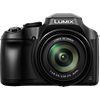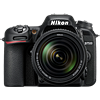Main
Model
Price
Advantages
launch
Announced
Body type
Camera subcategory
Sensor
Effective pixels
Max resolution
Sensor size
Sensor type
Processor
Image ratio w:h
Sensor photo detectors
Other resolutions
Image
ISO
Boosted ISO (maximum)
White balance presets
Custom white balance
Image stabilization
Uncompressed format
Boosted ISO (minimum)
Image stabilization notes
JPEG quality levels
Photography features
Minimum shutter speed
Maximum shutter speed
Maximum shutter speed (electronic)
Aperture priority
Shutter priority
Manual exposure mode
Subject / scene modes
Built-in flash
Flash range
External flash
Flash modes
Self-timer
Metering modes
Exposure compensation
AE Bracketing
WB Bracketing
Continuous drive
Screen / viewfinder
Articulated LCD
Screen size
Screen dots
Touch screen
Screen type
Live view
Viewfinder type
Viewfinder coverage
Viewfinder magnification
Viewfinder resolution
Videography features
File Format
Microphone
Speaker
Videography notes
Optics & Focus
Focal length (equiv.)
Optical zoom
Maximum aperture
Autofocus
Digital zoom
Manual focus
Normal focus range
Macro focus range
Number of focus points
Lens mount
Focal length multiplier
Physical
Weight (inc. batteries)
Dimensions
Environmentally sealed
Battery
Battery details
Battery Life (CIPA)
Storage
Storage types
Connectivity
USB
HDMI
Microphone port
Headphone port
Wireless
Wireless notes
Remote control
Other features
Orientation sensor
GPS
Timelapse recording
GPS notes
Samples
Videos
Summary
The D7500 maximum resolution of 5568 x 3712 pixels (21 megapixels) is better than the Lumix DC-FZ80 (Lumix DC-FZ82) highest resolution of 4896 x 3672 pixels (18 megapixels). The D7500 has larger sensor compared to the Lumix DC-FZ80 (Lumix DC-FZ82): APS-C (23.5 x 15.7 mm) versus 1/2.3' (6.17 x 4.55 mm). It is the most important difference between these cameras because large sensor lets you to make photos of the better quality. The D7500 has a wider ISO range of 100-51200 in compare with 80-3200 ISO range of the Lumix DC-FZ80 (Lumix DC-FZ82). This ISO numbers allow the camera owner to make better photos in more difficult conditions. The D7500 provides more number of white balance presets - 12. This specification gives you more control over colour. The D7500 provides more number of focus points in compare with the Lumix DC-FZ80 (Lumix DC-FZ82): 51 vs 49. More focus points means more convenience while attempting to focus on objects that are not centred.
The Nikon D7500 is produced with tilting LCD that will allow you to shoot great selfie photos. The Lumix DC-FZ80 (Lumix DC-FZ82) display is better as it has more number of screen dots 1,040,000 in compare to 922,000 dots of the D7500 screen. The higher dot count display is better for reviewing images on your camera. The D7500 offers better slowest (30 seconds) and highest (1/8000 second) shutter speeds.
The D7500 battery life is better in compare to the Lumix DC-FZ80 (Lumix DC-FZ82) battery life. According to CIPA standards you will be able to make 950 photos with the D7500 and only 330 with the Lumix DC-FZ80 (Lumix DC-FZ82). The Panasonic Lumix DC-FZ80 (Lumix DC-FZ82) weighs 616g which is 24g less than the weight of the Nikon D7500. The Nikon D7500 can utilize optional accessory GPS devices. This feature can be convenient if the camera owner is a traveller, to be able to check the picture metadata and find out exactly where a photo was produced.
The Nikon D7500 has 15 advantages and the Lumix DC-FZ80 (Lumix DC-FZ82) only 2 so the D7500 becomes the best buy. Get the list of the best offers on Amazon.


